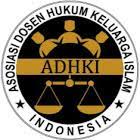Adopted Children and Their Relationship with Legacy
Perspectives of Ulama and KHI
DOI:
https://doi.org/10.63731/jhk.v1i01.5Keywords:
inheritance, adopted children, KHIAbstract
Raising children in Islam is mandatory, the right to care for children has a degree based on the benefit of the child. Starting from the mother and the immediate family of the mother, then the father's family according to the order of inheritance rights or the person given the mandate to maintain it. Today many children are cared for by non-biological parents, the problem is that most of them adopt equate children with biological children in terms of lineage, inheritance, mahram, and guardianship. This paper examines adopted children and their relationship with inheritance in Islamic law. The study employs an empirical juridist approach. The result of this research is that adopted children do not inherit assets from their adoptive parents, and vice versa. Adopted children can get the inheritance of their adoptive parents from the will or grant, and vice versa. The maximum amount of wills is 1/3 of the assets left if the deceased has an heir. If the deceased does not have an heir, it can be completely inherited.
Downloads
References
As-Shobuni, Muhammad Ali. Rawaai'u al -Bayan: Tafsir Ayaatu al- Ahkam. Bairut: Maktabah Ghazali, 1981.
Abdurrahman, Aisyah. Biography of the Wives of the Prophet Muhammad, trans. Najib Junaidi. Surabaya: CV Arta Sarana Media, 2013.
Basya, Abdurrahman Ra'fat. They are the Companions, trans. Izzudin Karimi. Solo: At - Tibyan, 2010.
Ad- Dariri, Ahmad. al-Syarh al-Shaghir’ala Aqrab al-Masalik ila Madzhab al-Imam Malik, juz 2. tt: Matba'atu al-Madani, tt.
Darussalam, Kopelma, and Banda City,’ Qur'anic Verification Regarding the Status of Nuraini's Adopted Children Faculty of Ushuluddin and Philosophy UIN Arraniry Kopelma Darussalam Banda Aceh City', 2008
Al Kasani, Bada'i al Shana'i fi tartibi al-sya'i, juz IV, Beirut: Darul Fikr, 1996.
Kathir, Ibn. Tafsir Ibn Kathir. Bogor: Imam Syafi'i Library, 1994.
Khalid, Khalid Muhammad. 60 Great People Around the Prophet SAW, trans. Rashid Satari. Bandung: Mizan, 2014.
. Biographies of 60 Companions of the Prophet, trans. Agus Suwandi (Jakarta: Ummul Qura, 2016.
Office of Children and Family Services , دليل أهالي التبني المؤقت في مدينة نيويورك للتبني. New York: Capital View Office Park, 2007.
Shalabi, Muhammad Mustafa. ﺃﺤﻜﺎﻡ ﺍﻷﺴﺭﺓ ﻓﻲ ﺍﻹﺴﻼﻡ. Beirut: tt, 1983.
Su'ban, Hilmi Ali. Zaid bin Harithah. Lebanon: Darul Khutub Ilmiyyah, 1991.
Shihab, Quraysh. Misbah interpretation. Tanggerang: Lentera Hati, 2005.
Usamah, (دراسة فقهية اجتماعية مقارنة) التبني ومشكلة اللقطاء وأسباب ثبوت النسب, see http://damascusuniversity.edu.sy/mag/law/old/economics/2007/23-2/18-al-hamwi.pdf
al- Zuhaili, Wahbah. Islamic Fiqh Wa’ Adilatuhu trans. Abdul Hayyi Al- Kattini, et al. Juz. 10, Depok: Gema Insani, 2007.
محمد باقر, زين العابدين, عارف عل عارف, and منتهى أرتاليم زعيم,’التبني ب’, Al Hikmah International Journal of Islamic Studies and Human Sciences, 2021 <https://doi.org/10.46722/hkmh.4.1.21i>
Downloads
Published
How to Cite
Issue
Section
License
Copyright (c) 2024 Jurnal Hukum Keluarga

This work is licensed under a Creative Commons Attribution-NonCommercial-ShareAlike 4.0 International License.












